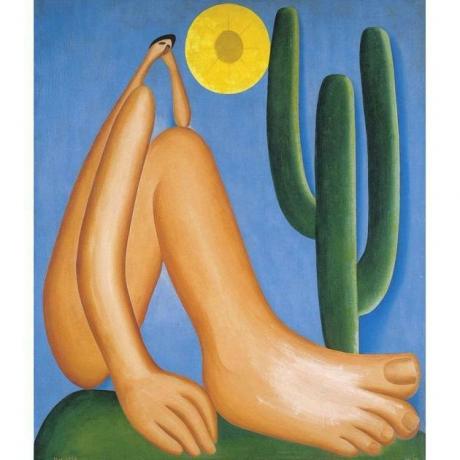THE popular Brazilian Music it was one of the main instruments used to challenge the military dictatorship (1964-1985).
The lyrics of several songs indicated dissatisfaction with the regime and several composers were the target of censorship and persecution.
Pointing out direct dissatisfaction or using metaphors, they had to exile themselves to avoid successive calls for statements and the possibility of imprisonment.
Now let's look at six songs that help to understand this period:
1. Despite you (Chico Buarque, 1970)

Composer, singer, playwright and writer from Rio de Janeiro Chico Buarque has one of the greatest productions aimed at criticizing the military dictatorship. His work is influenced by samba and everyday lyricism.
In the late 1960s, he was criticized for not taking a political stance, but when he did, he had to seek self-exile in Rome in 1968, and only returned to Brazil in 1970.
Following the advice of the poet Vinícius de Moraes, the composer returns to Brazil making noise. Submit the lyrics of the song "
in spite of you" to the censor and explains that it was a couple's fight. The chosen rhythm, the samba, left no doubt that it was a break in love theme.The censors did not understand the message that was hidden in each of the metaphors and, to the composer's surprise, they released the work. "in spite of you" was released as a single (disc that contained only two songs, one on each side of the vinyl).
From the first verse "Tomorrow will be another day", referring to a possible fall of the military, the lyrics criticized the military regime. The song achieved tremendous success and was played on radio stations across the country. When the military wanted to censure her, it was too late.
"In spite of you" would be released in 1978 and would be part of the album that would bring together other famous songs by Chico Buarque such as "So much sea" and "Homage to the Trickster".
in spite of you
Today you are the boss
Said, are you talking?
There is no discussion
(...)
in spite of you
Tomorrow will be
Other day
2. Not to say that I didn't mention the flowers (Geraldo Vandré, 1967)
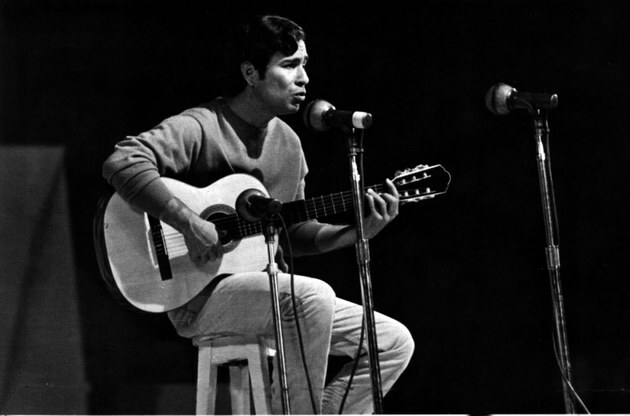
It is by Geraldo Vandré from Paraíba one of the most sung songs in marches against the military regime. The song "Not to say I didn't mention the flowers" portrays the Brazilian reality at the same time that it called on the population to react against the political situation in the country.
Verses like "There is hunger in the fields / in large plantations" revealed Brazil's socio-economic inequality. On the other hand, "Come, let's go / What to wait is not to know" it was an invitation to change the situation at the moment.
The theme was presented at the Festival Internacional da Canção in 1968, but lost to "You knew", by Chico Buarque and Tom Jobim. Performed by the duo Cynara and Cybele, the song received a resounding boo from the audience.
Geraldo Vandré left Brazil that year and would only return in 1973, without ever returning to the Brazilian art scene.
Although music was widely used by opponents of the dictatorship, Vandré never agreed with the use that part of the left made of its composition. He defined it as an "urban and chronicle of reality music" and not as a protest song.
He never hid his admiration for the Air Force and even wrote "Fabiana" in honor of the Brazilian Air Force (FAB).
Not to say I didn't mention the flowers
in the fields there is hunger
in large plantations
through the streets marching
Undecided cords
still make the flower
your strongest chorus
And believe in flowers
winning the cannon
come let's go
What to wait is not to know
Maybe it's time
don't wait to happen
3. The drunk and the tightrope walker (Aldir Blanc and João Bosco, 1975)
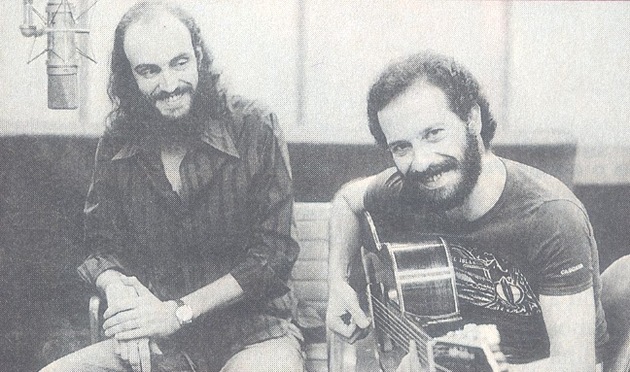
Both resorted to metaphors to allude to facts never explained by the military dictatorship, such as the fall of the elevated Paulo de Frontin, in Rio de Janeiro ("The afternoon was falling like a viaduct").
Likewise, the murder of journalist Vladimir Herzog is portrayed through the sentence "Marias and Clarices cry". The Clarice mentioned makes reference to Clarice Herzog, Vladimir's wife.
Initially, the lyrics paid homage to Charles Chaplin and his famous character, Carlitos. However, after an encounter with the cartoonist Henfil, the verses referring to the "brother of Henfil", Betinho, who was in exile, were added.
They also make use of popular expressions such as "motherland kind mother" and sayings like "the show has to go on" in order to make the lyrics accessible to all audiences.
The song sums up the feeling of those who called for amnesty to exiles and those who lost political rights. It was recorded in 1979, the same year the Amnesty Law was signed and became an anthem of those times.
The drunk and the tightrope walker
And clouds there in the sky's blotter
sucked tortured stains
What a suffocation!
Crazy!
the drunk with the bowler hat
I did irreverence a thousand
For night in Brazil
My Brazil!
Who dreams of the return of Henfil's brother
With so many people who left
in a rocket's tail
Cry
our kind motherland
Marys and Clarisses cry
on the soil of Brazil
4. Chalice (Gilberto Gil and Chico Buarque, 1973)
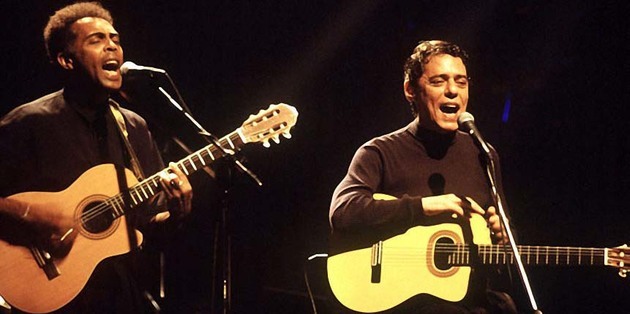
Singer and composer Gilberto Gil wrote in partnership with Chico Buarque one of the most remarkable songs in opposition to the dictatorship. "Cup" was composed in 1973, but was only released by censorship in 1975.
The work is a metaphor for the moment of supplication of Jesus Christ, aware that he will be killed, so that the Father takes away from him the cup (destiny). However, Gilberto Gil took advantage of the paronomasia produced by the sound of the syllables, as it is also possible to hear "shut up" from the verb to shut up.
Thus, the lyrics induce the "shut up" from the people, that is, the censorship imposed by the dictators.
In biblical history, Jesus Christ knows that he will be tortured and that death will be marked by blood. Likewise, the song denounces the blood shed by the tortured in the basements of the dictatorship.
The melody and the chorus make the lyrics more impactful. In one of the recordings, with Chico Buarque and Milton Nascimento, the word "shut up" is increasingly repeated by the male choir performed by the MPB4 quartet.
The last time the stanza is repeated, the instruments disappear, and the effect of the solo voices accompanied by the chorus makes the message unsettling.
Cup
how to drink this bitter drink
swallow the pain, swallow the toil
Even shut up, the chest remains
Silence in the city is not heard
What good is it for me to be a saint's son
It would be better to be the other's son
Another less dead reality
so much lie, so much brute force
Father, take that cup away from me
Father, take that cup away from me
Father, take that cup away from me
of blood red wine
5. Joy, joy (Caetano Veloso, 1967)
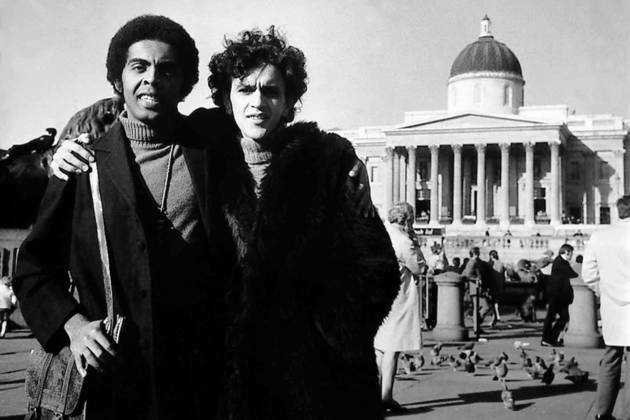
The songs by Caetano Veloso from Bahia also marked the criticism against the dictatorship. Among the most important is "Alegria, alegre", which inaugurates the Tropicalismo movement in Brazil.
The song was presented at the Festival da Canção, in 1967, and finished in 4th place. Later, it would be consecrated as one of the most important in Brazilian history.
It is a march with a strong American pop music accent. Caetano Veloso adds guitars to the instrumentation, faithful to his proposal to cannibalize foreign influences.
The lyrics can be understood as the impressions a person encounters when they are "walking against the wind". On the street, she sees "The sun on the newsstands / Fills me with joy and laziness / Who reads so much news". Likewise, he makes reference to the political situation that was going through Brazil "Among photos and names / No books and no rifle".
In the last verse, a desire that would become prophetic for all opponents of the military dictatorship "I want to keep living love". The lyrics were considered disrespectful and did not pass through the scrutiny of the censors.
Caetano Veloso followed Gilberto Gil into self-exile between 1969 and 1971, in London.
Joy Joy
she thinks about marriage
And I never went to school again
no handkerchief, no document
I will
I have a coke
she thinks about marriage
And a song consoles
I will
Between photos and names
no books and no rifle
no hunger no phone
in the heart of Brazil
6. Under the curls of her hair (Roberto and Erasmo Carlos, 1971)
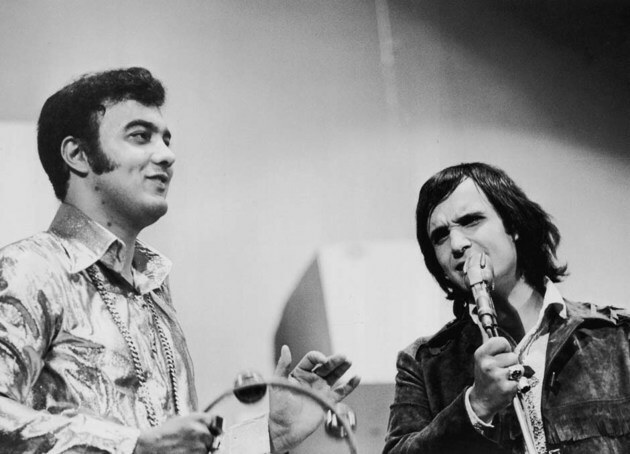
Romantic music icon Roberto Carlos led the Young guard, who introduced the rock n Roll in the daily life of Brazilians. Roberto Carlos did not declare himself against the regime, and his music, which spoke of the problems of youth, made the artist be seen as sympathetic to the military dictatorship.
However, in 1969, Gilberto Gil and Caetano Veloso are "invited" to leave the country and go to London. There, Veloso would write one of his greatest ballads, "London, London", which described the sadness I felt for being away from Bahia.
Roberto Carlos had the opportunity to visit him in the British capital and, upon returning to Brazil, he decided to write a song in honor of his friend. However, if he spoke of Caetano explicitly, the lyrics would be censored. The solution was to resort to metonymy and using Caetano Veloso's curly hair to allude to the artist without having to say his name.
Written in partnership with Erasmo Carlos, the lyrics mention the sadness that Caetano was living in exile. The feeling is expressed in verses like "And your sad look/let your chest bleed/A longing, a dream". However, he also gave his friend support and hope when he mentioned the "white sand" and the "blue water of the sea" of Bahia's beaches.
The protest went unnoticed by the censors, who were used to the lyrics that dealt with love and passion in a wild way.
Caetano Veloso and Roberto Carlos made numerous recordings of this song throughout their careers.
Under the curls of your hair
A story to tell
From a world so far away
Under the curls of your hair
A hiccup and the urge
to stay a moment longer
you walk in the afternoon
And your sad look
let it bleed in the chest
a longing, a dream
one day i will see you
arriving in a smile
stepping on white sand
what is your paradise
Read our texts on Military Dictatorship in Brazil:
- economic miracle
- Direct now
- Democracy in Brazil
- Years of Lead
- 1964 Military Coup
- Questions about the Military Dictatorship


